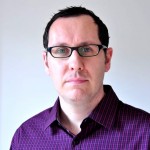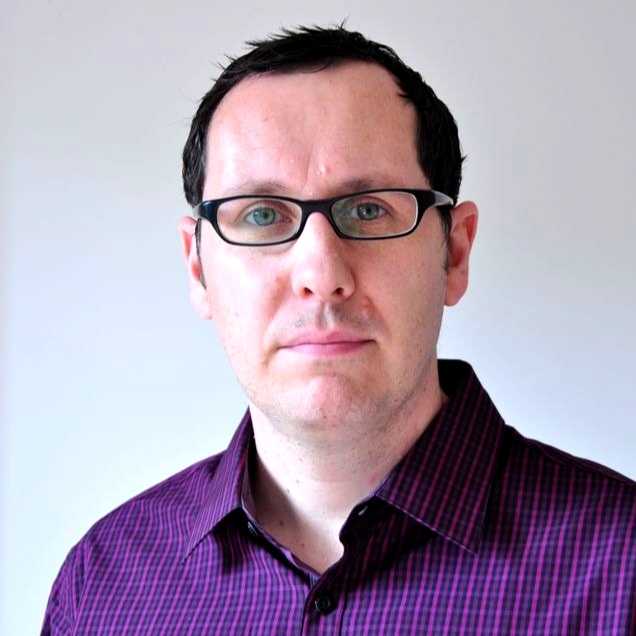Separating Myths, Beliefs and Truths in the Classroom
James Taylor

A couple of years ago, I gave myself a new self-description to go alongside the already existing “teacher”, “football fan” and “music lover”. I started calling myself a “sceptic”. Simply put, a sceptic (or skeptic, if you’re from the US) is “a person inclined to question or doubt accepted opinions”. I became interested in skepticism, the movement of activism and engagement that has emerged in the last couple of decades due to my love of podcasts, somehow stumbling across both the Skeptics Guide To The Universe and Skeptoid, two shows that investigate the world with an open-minded, inquisitive but demanding set of criteria centred around one key premise – what’s the evidence?
Most of the issues that sceptics deal with are science based, and as someone whose background in the subject is limited to secondary / high school level, the main influence that it has had on me has not been my science literacy, although I’m sure that has improved. Nor has it been the welcome introduction of the word ‘woo’* to my lexicon. Rather, the main thing I have gained, I like to think, is a way of thinking, a more critical, nuanced, reflective and demanding set of cognitive skills.
Listening to sceptics go through their reasoning is a very valuable thing to observe. Us humans find it difficult sometimes to choose the correct, rational option, instead falling foul to one of many possible ‘logical fallacies’, as they are called. For example, we may be discussing a subject with a colleague who is more experienced than us and we find ourselves agreeing with them, based on nothing more than the fact that they’ve been doing the job for longer than we have. This is an example of the ‘argument from authority’ fallacy, where the assumption of knowledge due to experience is assumed to have more credibility than any other factor, including evidence to contrary.
By listening to the sceptics, we can begin to develop our own critical faculties and more accurately look at the world around us. Russell Mayne, on his blog Evidenced Based EFL, which is in his words is “dedicated to looking at language and language teaching from an evidence-based viewpoint” and is therefore essential reading for any with an interest in EFL from a sceptical point of view, recently asked for us to `ask for evidence.’ In his words, “the next time someone claims that ‘teacher talking time should be reduced’ or ‘grammar mcnuggets are bad for students’ or that ‘students have nine different types of intelligence’ politely enquire on what grounds the speaker makes those claims and be cautious of accepting ‘my experience’ or ‘it’s obvious’ as answers.”
As a sceptic, this obviously appealed to me. The questions he asked made me reflect on my own teaching. How much of what I do in the classroom, moulded from my years of experience, personal beliefs about how language is taught, and the training I have received, is backed up with research? The honest answer is that I don’t know. I’m trying to be skeptical in my day to day life, but right now I don’t feel I’m successfully bringing this into my teaching practice.
The central issue here, for me, is how can I make my teaching more evidence based? With all the will in the world, I can’t do the research myself. I would definitely encourage teachers to do their own experimental practice and investigate a particular area of their teaching, but we can’t investigate everything we do. If we want to access the research of MA students who are looking into all these areas, where do we go? Most research never sees the light of day after graduation, and if it does it’s published behind paywalls and in subscription only journals, which we can’t access and even if we could, would we have time to read them?
So I don’t have a satisfactory answer to this question. At this stage, I don’t know how I, as regular teacher, can separate the myths from the beliefs and from the truths, but this doesn’t invalidate the question. If there’s one thing I’ve learned from sceptics it’s that the absence of evidence doesn’t equate to evidence for the opposing view. Perhaps in time we will find a workable solution. Until then, I will continue to ask awkward questions of those who make claims about teaching English, and of myself. I am absolutely convinced that this makes me a better teacher, and I’m sure it’ll have the same effect on you.
*Woo’ is shorthand for pseudoscientific nonsense. For example, homeopathy? Woo. Healing crystals? Woo. Chemtrails? Woo. A very useful word!
Connect with James and other iTDi Associates, Mentors, and Faculty by joining iTDi Community. Sign Up For A Free iTDi Account to create your profile and get immediate access to our social forums and trial lessons from our English For Teachers and Teacher Development courses.


I also wish I could research my practices in class. I’ve just read about the incredible research done on Sesame St. Episodes and I was a bit jealous! What we can do in class, especially with long term students is just see what sunk in over time. That is, as much as we can tell from the work the students produce.
Naomi
I agree Naomi that we’re a bit stuck at the moment if we want to have a more evidence based approach, but basing it on our own experience is very much a poor cousin. Just because it worked once, twice or three times, doesn’t mean it will work again, or work for someone else. There are so many variables from one lesson to the next, let alone from a different class to the next, it’s difficult to take that certainty we have based on our experience into a completely different context and also expect it to work. But what else can we do at the moment?
Here, at least, is something for the student with a real interest in truth to get her epistemological teeth into. At first it sounds like a negative epistemology, according to which the way towards the truth (which may never be reached) is through a series of negations, where the falsity of previous ideas is proved. We can know what is false, but we can never know for sure what is true about the world (Popper would be proud). But then the idea of evidence seems to make things much simpler: as long as there is evidence we can be satisfied with the truth of the proposition which the evidence is so obviously evidence of. Skepticism stops and an empiricist slumber begins.
Is there not here what might be called an empiricist fallacy – the fallacy that evidence is something that provides a rock-solid foundation for the Truth? An example of the problem here: Take the idea that thrashing students improves the orderliness of their behaviour in class. In a society where thrashing children is accepted, it wouldn’t be too difficult to find evidence to prove the proposition. And generations of teachers were basing their use of corporal punishment on what appeared to be rock-solid evidence. The problem, obviously, is with the idea of an orderly classroom (what sort of orderliness is best?) and the idea of thrashing a child (is it really the right sort of thing to be doing?). To answer those two questions, we need a theory or theories. Evidence alone won’t do it.
In other words, we need a pedagogy – a philosophy of education. Perhaps that is a category that deserves to be added to the list, in between “Ongoing Research” and “Presenting Vocabulary”?
Hi James.
To be sceptic is something great beause it pushes us to know the truth. If we don’t doubt what we see and analyze it with an open mind and with critical thinking, there will be no knowledge .This latter is constructed through that process. We are human beings , we do have a magic muscle called the brain. Therefore scepticism-of course to a resonable degree- is born with us and it is pretty helpful sometimes!!